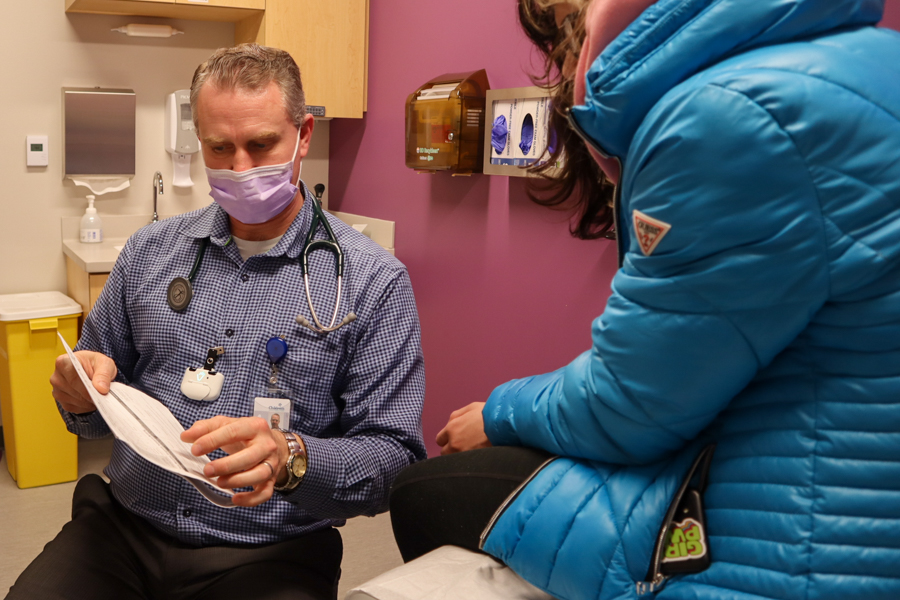Dr. Jesse Barondeau Prepares Pediatric Learners for Unique Qualities of Adolescent Care

Adolescence is a complicated time in a child's life that presents equally complex challenges to pediatricians. Jesse Barondeau, MD, is the only fellowship-trained adolescent medicine physician in the region of Nebraska, the Dakotas, western Iowa and parts of Wyoming and Montana.
As the chief of the Division of Adolescent Medicine, he encounters patients with a wide range of health concerns not commonly found in younger patients and enjoys passing on to learners the challenges and joys of treating children as they approach adulthood.
"Adolescence is a gray zone for many kids as they become mature enough to develop adult-type health challenges or engage in risky behaviors, such as substance abuse and sexual activity. Yet, they have similar autonomy in seeking care as small children,” Dr. Barondeau explained. "Adults with similar health problems can easily receive confidential treatment and therapy, but many legal and logistical barriers prevent teenagers from getting help for these situations. These complicating factors may lead to missed diagnoses or lost opportunities to provide services that can address and prevent significant health factors with immediate or lifelong consequences."
Because of the complexity of the adolescent patient population, aspects of care that are generally straightforward with younger patients can become complicated. For example, taking the history or evaluating the health of a patient sometimes becomes a challenge when patients are fearful or embarrassed to discuss their needs. Dr. Barondeau believes it is crucial that pediatrics learners become experienced and comfortable talking to adolescent patients about challenging topics to deliver the best care. Alongside Dr. Barondeau, learners gain experience with adolescent patients with developmental, mental health, educational or reproductive health issues, as well as chronic health situations that can worsen during adolescence.
Dr. Barondeau notes that learners may find aspects of adolescent care intimidating, such as treating teens with oppositional or conduct disorders, reproductive health concerns or severe depression or anxiety. Care can also be difficult when there is significant disagreement or discord within the family or between the teen and parents. However, he finds learners appreciate gaining the exposure to adolescents with more complicated or uncomfortable concerns and experiencing the reward and satisfaction of helping children during a particularly vulnerable, but exciting, stage of their lives.